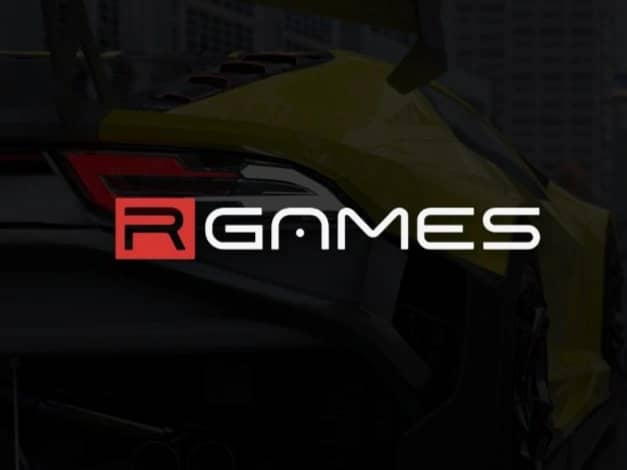Subscribe to wiki
Share wiki
Bookmark
R Games
The Agent Tokenization Platform (ATP):Build autonomous agents with the Agent Development Kit (ADK)
0%
R Games
R Games is a blockchain-based, multi-mode racing game world developed by Gyros Studio. The project is designed to integrate advanced artificial intelligence, applied automotive design, and support for user-generated content within a player-driven economy. [1] [2]
Overview
R Games is a gaming project produced by Gyros Studio with the objective of creating a dynamic and community-driven racing ecosystem on the blockchain. Its core concept is structured around three main pillars: Racing, Artificial Intelligence, and Engineering. The platform aims to deliver a realistic and immersive racing world by offering a variety of game modes, ranging from story-driven campaigns and professional track racing to demolition derbies.
The integration of blockchain technology is central to the R Games model, facilitating true ownership of in-game assets. Vehicles and other items are represented as non-fungible tokens (NFTs), allowing players to own, manage, and trade them freely. The in-game economy is powered by its native utility token, $RGAME, which is deployed on multiple blockchain networks, such as Solana and Binance Smart Chain, to enhance accessibility. The project also plans to implement a play-to-earn (P2E) model, which would allow players to earn rewards through their in-game performance and participation. The development of R Games is supported by several venture capital firms and guided by a board of advisors from the Web3 and investment sectors. [1] [2]
R Modes
- Formula R: Simulates high-speed Formula-style races on professional tracks using F1-style vehicles.
- Street Mode: Features urban racing through city streets with obstacles like traffic and tight turns.
- Demolition Mode: Encourages tactical collisions as players compete in rugged, off-path environments to outlast or crash opponents.
- Off-Road Racing: Designed for challenging terrain, this mode uses vehicles optimized for off-road performance.
- Story Mode: Incorporates narrative-driven races and challenges set within changing environments, from cityscapes to professional circuits. [8]
Ecosystem
The R Games ecosystem is designed to connect gameplay, digital asset ownership, and its token economy. The central component is the game itself, where players compete in various modes. The ecosystem includes players, who participate in races and events; creators, who will be able to design and publish user-generated content; and token holders, who engage with the platform's economic and governance features. [2]
In-game assets, particularly vehicles, are structured as NFTs, which can be managed and showcased in the R-Garage. The $RGAME token serves as the primary medium of exchange within this ecosystem, used for transactions, upgrades, and accessing content. The ecosystem is intended to be self-sustaining, with a planned NFT marketplace that will allow players to trade these assets. This structure is further supported by a staking mechanism for token holders to earn rewards and a future governance system intended to give the community a voice in the project's development. [1]
Use Cases
- Gaming and Entertainment: Providing users with a variety of racing game modes for competitive and casual play.
- Digital Asset Ownership: Allowing users to collect, customize, and upgrade unique vehicle NFTs within the R-Garage.
- Trading: Enabling players to buy, sell, and trade their NFT vehicles and other digital assets on a planned marketplace.
- Play-to-Earn Mechanics: Allowing players to earn $RGAME tokens and other in-game rewards through achievements and tournament victories.
- Content Creation: Enabling players to design, build, and share their own custom tracks, vehicles, and other in-game assets.
- Staking: Permitting token holders to stake their $RGAME tokens to receive staking incentives.
- Community Governance: Giving token holders the ability to participate in key decisions regarding the platform's future development. [1] [2]
Tokenomics
R Games’ token, $RGAME, has a fixed maximum and total supply of 1,000,000,000 tokens, with no additional issuance beyond this cap. Market data lists a fully diluted valuation of approximately $70,349.64 and a 24-hour trading volume of about $9,785.50 and is available on decentralized exchanges like PancakeSwap and Jupiter. [1] [3]
Allocation
- Staking & Farming Incentives: 20% (200,000,000 $RGAME)
- Liquidity (CEX & DEX): 19% (190,000,000 $RGAME)
- Public Sale: 12% (120,000,000 $RGAME)
- Team: 10% (100,000,000 $RGAME)
- Development: 9% (90,000,000 $RGAME)
- Private Sale: 8% (80,000,000 $RGAME)
- Pre-Seed: 7% (70,000,000 $RGAME)
- Seed Sale: 5% (50,000,000 $RGAME)
- Advisors: 5% (50,000,000 $RGAME)
- Marketing: 5% (50,000,000 $RGAME) [1]
Token Utilities
- Serving as the primary currency for in-game transactions, including the purchase of assets and NFTs.
- Used for upgrading and customizing vehicles in the R-Garage.
- Staking to allow holders to earn rewards and other platform benefits.
- Functioning as a reward mechanism for player achievements and contributions to the ecosystem.
- Enabling participation in future governance votes on platform proposals. [1]
Governance
R Games plans to implement a decentralized governance model where holders of the $RGAME token can influence the platform's development. This system aims to allow the community to vote on proposals related to game updates, economic parameters, new feature integrations, and the allocation of ecosystem funds. The goal of this model is to foster a community-led approach to the project's long-term direction. [1] [2]
Partnerships, Backers, and Advisors
Backers
- Oddiyana Ventures
- Ferrum Network
- Lavender Capital
- BMW Capital
- Qu Ventures
- IBC Group
Advisors
- Ferrum Network
- Yuen Wong
- Eric Cryptoman
- Robby Jeo
- Rajan Raj
- Sky WEE
- Mario Nawfal [1] [2]
See something wrong?
The Agent Tokenization Platform (ATP):Build autonomous agents with the Agent Development Kit (ADK)
